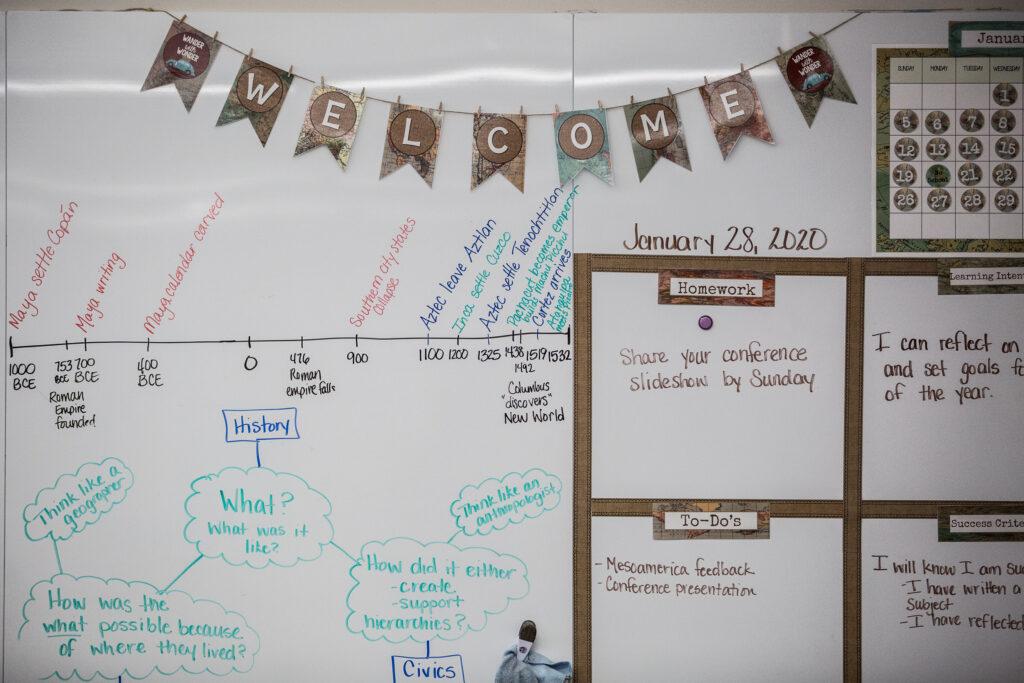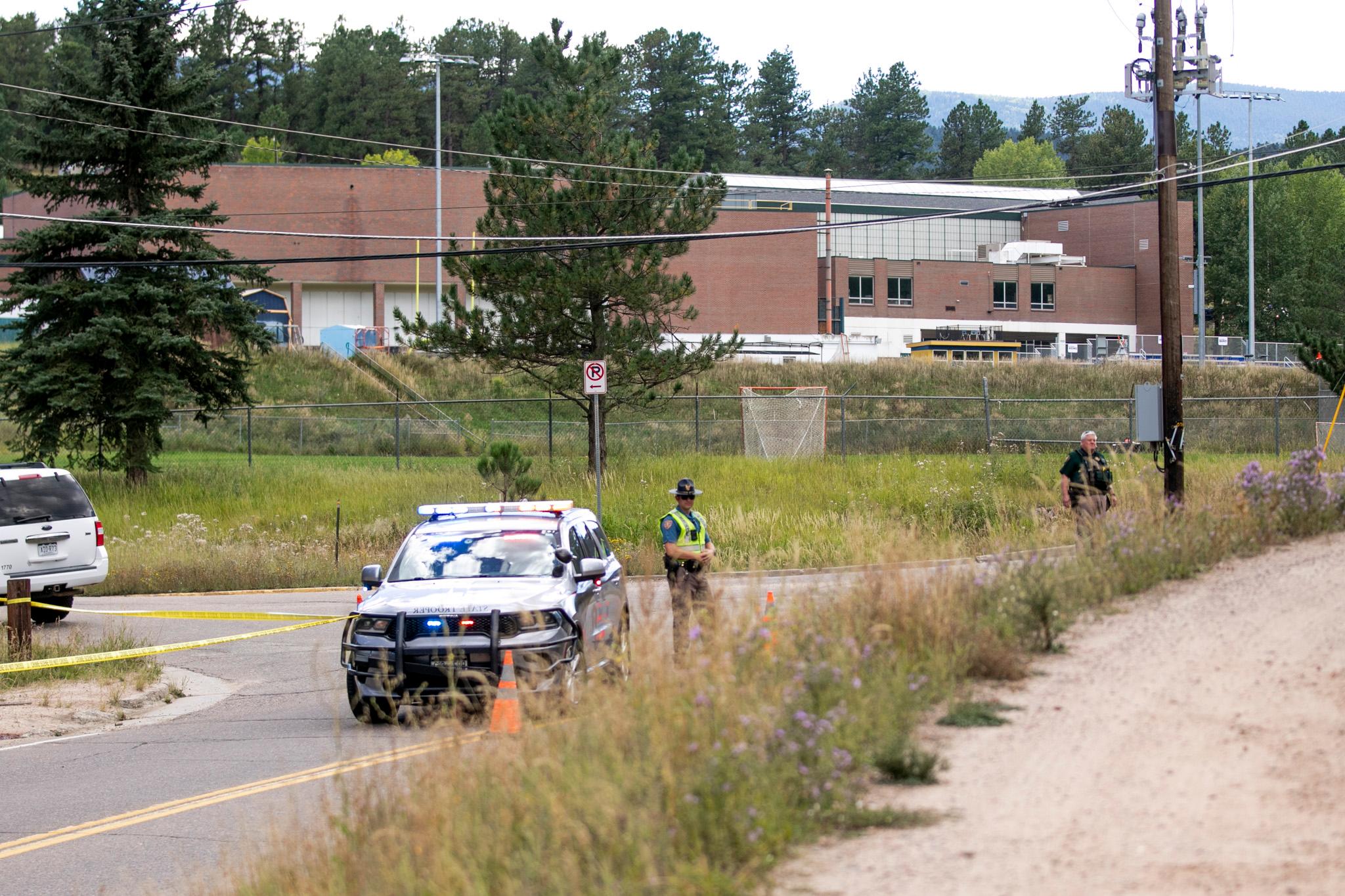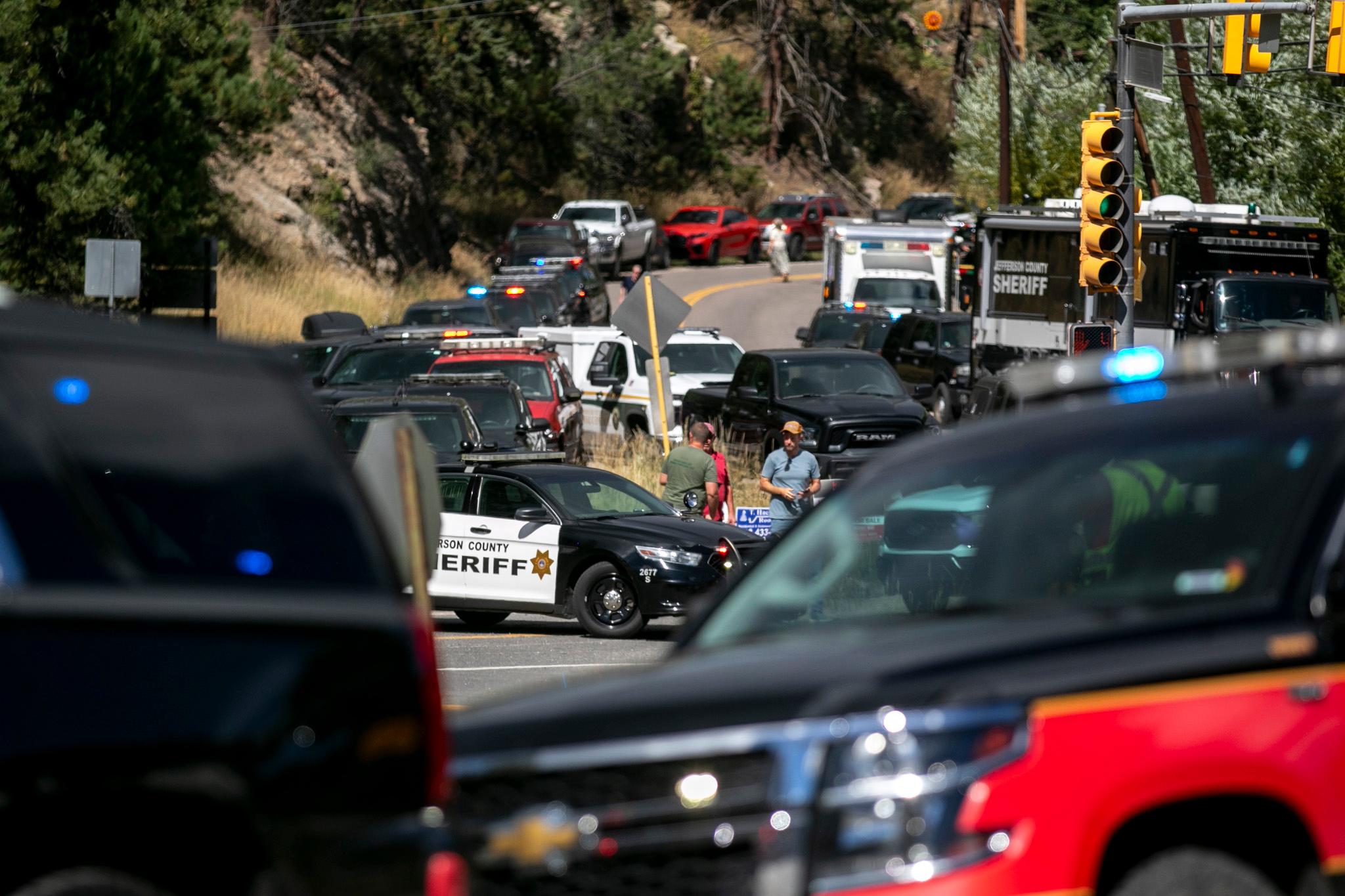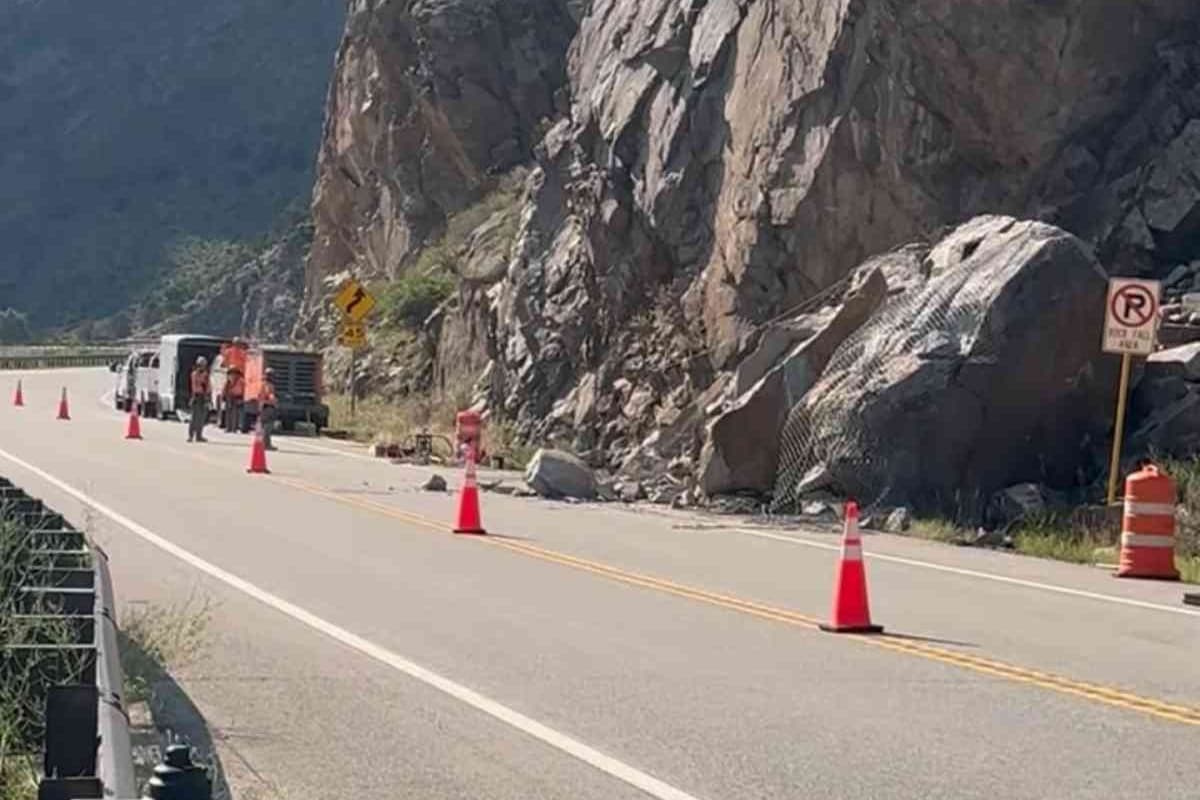
How swiftly and accurately Colorado gets federal education dollars in the future is in question, according to two furloughed federal employees who testified at a special legislative hearing Wednesday. The employees, who both played a key role in overseeing federal funding and other grants to states, also expressed doubt that the federal funding schools get now will continue.
“I feel that the impact will be felt very very soon,” said Joe Murphy, a former management and data analyst at the Department of Education. “These grants need to be made this summer … I think you'll start to see delays in funding starting then and perhaps non-existent funding starting then.”
Democratic Sen. Chris Kolker, chair of the Senate Education Committee, organized the hearing so lawmakers and the public have a better grasp of how the Trump administration’s decision to slash the federal education department in half earlier this year is impacting Colorado now and in the future. They were also briefed on a dramatic slowing or stopping altogether of civil rights investigations in Colorado schools.
The bottom line is federal funding looks fine for the next school year, but there will be no data upon which to base federal funding after that.
Colorado gets about $800 million, or 10 percent, of its K-12 budget from the federal government every year. But some school districts are much more dependent on federal dollars.
Some places more reliant on federal funds
Take the Fountain-Fort Carson school district near Colorado Springs. A third of its budget is federal money, or $48 million a year. That’s because it gets extra money to make up for the property tax revenue it loses because of the military bases there. A cooperative agency that helps a number of rural school districts, Centennial BOCES, gets 46 percent of its funding from the federal government.
“This is a huge reliance on federal funding,” said Sarah Newman, a former department data analyst.
Murphy and Newman were two employees on a six-person team that oversaw 100 grant programs, along with 300 other employees, for 100,000 school districts across the country. For example, funding for the Title I program goes to schools with high numbers of children living in poverty. IDEA funding goes to children with disabilities.
Their job was to monitor and flag anomalies and make sure funding got to the children who needed it. They made districts aware of grant opportunities, assessed grantee risk and ensured compliance. But everything changed on March 11 when 2,000 federal education employees lost their jobs.
Córdova confident, for now
At Wednesday’s hearing, Colorado’s education chief presented a rosier picture. She’s confident, at least for now, that funding will keep flowing. Susana Córdova recently attended a Council of Chief State School Officers meeting with state education commissioners, federal education officials as well as Education Secretary Linda McMahon.

“What we've heard from the new Secretary of Education is a commitment to continue funding,” she told lawmakers. “We're very hopeful that that would be the case because I think absent that funding, very important and critical services would be missing for students who rely on them.”
She acknowledged that it’s unknown what Trump plans in his education budget for the 2026-27 school year. Córdova said her department has points of contact in the revamped department of education and the department has continued to receive communications though they’ve slowed down a bit.
Ex-employees point to disruptive ripple
The two former federal employees are more skeptical about the future.
Newman can’t understand how all the federal funding can be administered without data.
“Given what has been terminated thus far, there is reason to believe many services will no longer be provided to Colorado children,” said Newman. “They will not be phased out. They will be there one day and not the next.”
They said the direct impact being felt in Colorado now is minimal, but a “disruptive ripple” effect has been created because the release of any more data has been put on hold. There was no advance notice to help prepare the remaining workers to take over the highly technical tasks.

Some expect federal education money will eventually be doled out to states in the form of block grants to decide how to use it. That would take a change in federal law. While some people are excited about that possibility, state lawmakers at the hearing asked the two about how to begin protecting funding streams.
Murphy and Newman urged state lawmakers to take “quick and decisive” action. They recommended planning for state legislation that models current federal allocations for students in need.
Student civil rights investigations halted
Another important role played by the federal department of education is ensuring the civil rights of all children are protected in school. The Office for Civil Rights upholds Title VI of the 1964 Civil Rights Act and Title IX, which prohibits discrimination based on sex in education programs. It investigates allegations of discrimination in schools based on disability, race and gender.
For example, several years ago, Disability Law Colorado learned that students with disabilities were being segregated in a decrepit trailer behind a new school building in the San Luis Valley. It filed a complaint with the Office for Civil Rights. That office investigated, allowing the children to be integrated with their classmates in the new building.
But federal civil rights investigations came to a screeching halt in March after the administration cut six regional civil rights offices. Denver’s office was preserved, one of five regional offices remaining. Denver’s office covered five states. It will now take on eight additional states.
The federal website for pending investigations hasn’t been updated since mid-January.
Grim assessment
Emily Harvey, co-legal director for Disability Law Colorado, offered a grim assessment at Wednesday’s hearing of how the civil rights of racially bullied, sexually harassed or children with disabilities are being protected now.
She said Denver had 600 open investigations in January and now has an additional 2,200 more from the shuttered Cleveland and Chicago offices. The numbers could be much higher. Harvey said Denver’s staff was cut by a third with 24 employees now responsible for handling more than 2,800 investigations. Full staffing for this new region would likely require a staff of 100 to 120, she said.

“For many students with disabilities and their families, that means bullying, discrimination, and other civil rights violations may continue without remedy or recourse. It's not just troubling, it's unacceptable.”
The Trump administration has shifted its civil rights focus to eliminating all-gender bathrooms, stopping transgender girls from participating in girls’ sports, rooting out anti-Semitism, and ensuring white students do not face discrimination in school as a result of diversity, equity and inclusion initiatives.
“Colorado can't count on the federal government to protect children with disabilities, we'll have to do that ourselves,” Harvey told lawmakers. She urged them to enact a new civil rights law for Colorado students, authorizing the state government to enforce federal disability law. That means the state would take on the role of investigating complaints and ensuring corrective action.
Colorado currently doesn’t have the funds for that. This year lawmakers had to cut $1.2 billion from the state budget, and the outlook for next year is worse.








